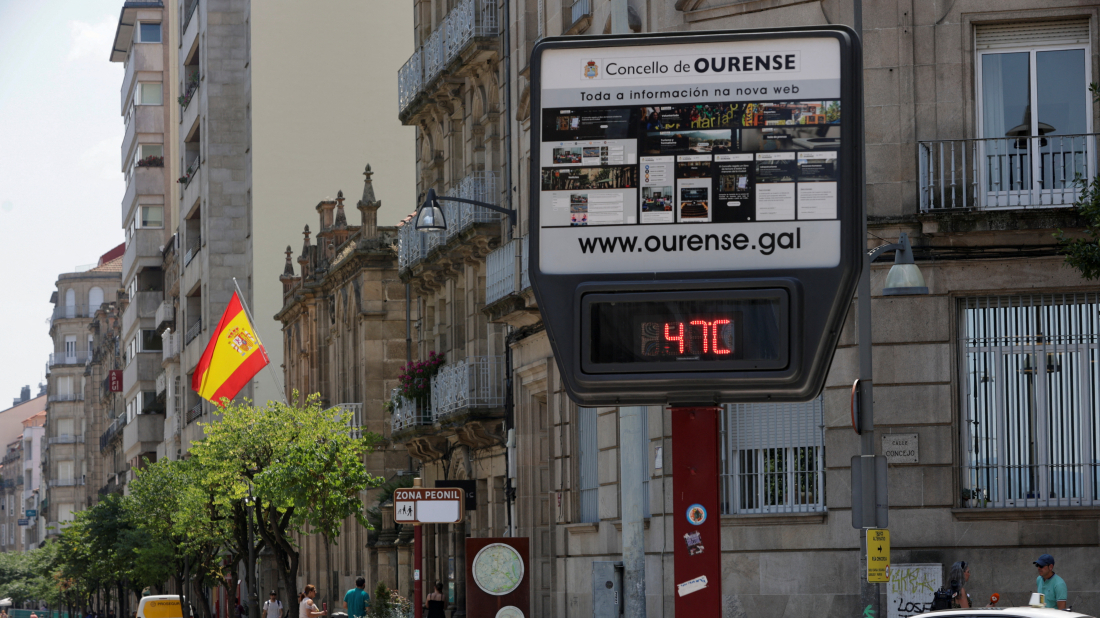live Iran’s Supreme Leader Ayatollah Ali Khamenei is dead, state media confirms
Follow the latest developments and global reaction after the U.S. and Israel launched “major combat operations” in Iran, prompting reta...

A deadly heatwave has claimed 1,180 lives in Spain since May, with elderly people most at risk, prompting calls for urgent social support.
Spain is witnessing an alarming spike in heat-related deaths, with 1,180 fatalities recorded between 16 May and 13 July, according to the Spanish Ministry for Ecological Transition and Demographic Challenge. This marks a more than 1,300 percent increase from the same period in 2024, when just 114 deaths were reported.
Professor Javier Martin-Vide, a physical geography expert at the University of Barcelona, told China’s Xinhua news agency that the primary danger from heatwaves is their lethal effect on human health.
"The main threat is that excessive and extreme heat kills. It has a serious impact on health, especially for older people – many of whom live alone and suffer from chronic illnesses," he said.
Martin-Vide urged the implementation of targeted support, including home visits by health and social workers, to help the elderly stay hydrated and avoid heatstroke in poorly ventilated homes.
Government figures confirm the vulnerability of the elderly, with 95 percent of the victims aged over 65 and 59.2 percent being women.
In the first week of July alone, deaths linked to extreme temperatures rose by 47 percent compared to all of June. Temperatures reached 40 degrees Celsius in several areas, prompting 76 red alerts nationwide. No red alerts had been issued during the same timeframe last year.
The northern regions of Galicia, La Rioja, Asturias, and Cantabria were among the hardest hit.
Spain’s meteorological agency, AEMET, recorded the highest-ever national average temperature for June at 23.6 degrees Celsius, surpassing the previous record set in 2017. AEMET predicts a 70 percent likelihood that July’s average will exceed historical norms as well.
Martin-Vide noted, "The current temperatures resemble those of the hottest years in August, not what’s typically expected for June or July."
Follow the latest developments and global reaction after the U.S. and Israel launched “major combat operations” in Iran, prompting retaliation from Tehran.
Tensions between the U.S. and Iran are escalating, with Washington ordering a significant military build-up in the region and multiple countries evacuating diplomatic staff amid fears of further instability.
Two people were killed and around 40 injured when a tram derailed in central Milan on Friday (27 February), a spokesperson for the local fire service said.
Iran’s top diplomat said that the next round of nuclear talks is expected in less than a week after what he described as “progress in the most serious exchanges” between Tehran and Washington. The statement follows the third round of nuclear talks on Thursday (26 February) in Geneva.
Pakistani air strikes hit a weapons depot on the western outskirts of Kabul overnight, triggering hours of secondary explosions that rattled homes across the Afghan capital and left residents fearing further violence.
A senior Iranian official has warned Israel to “prepare for what is coming”, insisting that Tehran’s response to the latest escalation in the Middle East will be made openly and without limits.
Cuba has released extensive details of a deadly midweek shootout at sea, showing rifles, pistols and nearly 13,000 rounds of ammunition that it says were carried by a group of exiles who attempted to enter the island by speedboat.
Afghanistan’s Taliban rulers said on Friday (27 February) they were ready to negotiate after Pakistan bombed their forces in several Afghan cities, including Kabul and Kandahar, and Islamabad declared the neighbours were now in "open war".
Tensions between the U.S. and Iran are escalating, with Washington ordering a significant military build-up in the region and multiple countries evacuating diplomatic staff amid fears of further instability.
Two people were killed and around 40 injured when a tram derailed in central Milan on Friday (27 February), a spokesperson for the local fire service said.
You can download the AnewZ application from Play Store and the App Store.

What is your opinion on this topic?
Leave the first comment